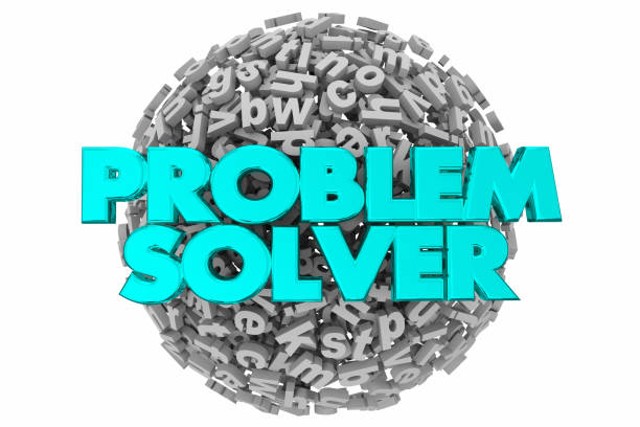Problem-solving skills are essential life skills. Whether dealing with a complex work project, a personal dilemma, or just trying to figure out how to assemble that new piece of furniture, the ability to think critically and develop effective solutions is key.
The good news is that problem-solving skills can be learned and improved over time. So, if you feel like you’re not the best problem-solver right now, don’t worry! You can become a problem-solving pro with the right mindset and some practical techniques we’ll share in this article.
READ ALSO: How to Build a Thriving Online Community Around Your Brand
What are the strategies for developing your problem-solving skills?
1. Adopt a Positive Mindset
2. Embrace Curiosity
3. Break It Down
4. Get Creative
5. Learn from Mistakes
6. Collaborate with Others
7. Embrace Flexibility
8. Practice, Practice, Practice
9. Stay Organized and Focused
10. Develop a Toolbox of Strategies
11. Learn from Experts
12. Cultivate Patience and Persistence
13. Celebrate Your Successes
READ ALSO: How To Get Over the Imposter Syndrome While Working Remotely
1. Adopt a Positive Mindset
Alright, let’s start with the foundation—your mindset. How you approach a problem can make all the difference in how you tackle it.
If you tend to panic or feel overwhelmed when faced with a challenge, it’s time to shift your perspective. Instead of seeing problems as obstacles, start viewing them as opportunities for growth and learning.
When a problem arises, take a deep breath and remind yourself that you’ve got this. Believe in finding a solution, and approach the challenge with a positive, can-do attitude. This simple shift in mindset can work wonders for your problem-solving skills.
2. Embrace Curiosity
Another key aspect of effective problem-solving is curiosity. When you approach a problem with genuine interest and a desire to understand it better, you’ll likely find an effective solution.
Instead of jumping straight to conclusions or trying to fix the problem right away, take some time to explore the issue. Ask yourself questions like:
– What’s causing this problem?
– What information do I need to understand the situation better?
– How have similar problems been solved in the past?
3. Break It Down
One of the biggest mistakes people make when tackling a problem is trying to solve it all at once. This can quickly become overwhelming and lead to feelings of frustration and defeat.
Instead, try breaking the problem down into smaller, more manageable pieces. This could involve identifying the key components or breaking it down into a series of steps or tasks.
For example, let’s say you’re trying to plan a big event. Instead of coordinating every detail at once, start by tackling things like the venue, the guest list, and the catering separately. Once you’ve got those pieces, you can move on to the next step.
By breaking down the problem into smaller, more digestible parts, you’ll find it much easier to understand and develop effective solutions.
READ ALSO: Overcoming Remote work challenges
4. Get Creative
Problem-solving isn’t just about logic and analysis – it also requires a healthy dose of creativity. When you approach a problem with an open, imaginative mindset, you open yourself to a world of possibilities.
Don’t be afraid to think outside the box and explore unconventional solutions. Brainstorm wild and crazy ideas, even if they initially seem a bit far-fetched. You never know – that crazy idea might just be the key to unlocking the perfect solution.
Try using techniques like mind mapping, free-writing, or even just doodling to stimulate your creative juices. The more you exercise your creative muscles, the easier it will become to come up with innovative solutions to any problem that comes your way.
5. Learn from Mistakes
Okay, let’s be real – nobody’s perfect. Even the best problem-solvers out there make mistakes from time to time. But you know what they say: “Fail forward.”
Instead of beating yourself up over a misstep, view it as an opportunity to learn and grow. Analyze what went wrong, and think about how you can do things differently next time. What did you learn from the experience? How can you apply that knowledge to future problems?
Embracing a growth mindset and seeing mistakes as a natural part of the problem-solving process can be empowering. When you’re not afraid to fail, you can take risks, experiment, and become a better problem-solver.
6. Collaborate with Others
While problem-solving is often seen as a solo endeavor, it can be hugely beneficial to work with others. Collaborating with a team or seeking input from colleagues, friends, or experts can provide a fresh perspective and unlock new solutions.
When brainstorming ideas or developing a game plan, don’t be afraid to bounce your thoughts off someone else; they might catch something you missed or suggest an approach you hadn’t considered. Plus, working together can make the problem-solving process more enjoyable and rewarding.
Remember, you don’t have to have all the answers. Leaning on the wisdom and experience of others can be a powerful tool in your problem-solving arsenal.
READ ALSO: The Professional Network You Need To Succeed Remotely
7. Embrace Flexibility
The most effective problem-solvers are willing to adapt and adjust their approach as needed.
Don’t stubbornly stick to your guns when you hit a roadblock or find that your initial solution isn’t working. Instead, be open to trying a different tactic or exploring alternative paths. Experiment, iterate, and be willing to change course if necessary.
Flexibility also means pivoting when new information or unexpected challenges arise. The ability to think on your feet and pivot your strategy accordingly is a hallmark of a great problem-solver.
So, ditch the rigidity and embrace the power of flexibility. It’ll make you a more agile, resilient, and successful problem-solver.
8. Practice, Practice, Practice
Like any skill, problem-solving gets better with practice. The more you expose yourself to different problems and challenges, the more comfortable and confident you’ll become in your problem-solving abilities.
Seek opportunities to flex your problem-solving muscles, whether through work projects, personal challenges, or even brain teasers and puzzles. The more you engage in the process, the more intuitive it will become.
And don’t be discouraged if you don’t see immediate results. Improving your problem-solving skills is a journey, not a destination. With consistent practice and a willingness to learn, you’ll gradually become more adept at tackling any problem that comes your way.
9. Stay Organized and Focused
Effective problem-solving requires a certain level of organization and focus. When faced with a complex challenge, it’s easy to get bogged down in the details or lose sight of the bigger picture.
That’s why it’s important to develop strategies for staying organized and focused throughout the problem-solving process. This could involve creating checklists, setting deadlines, or using project management tools to keep everything on track.
It’s also crucial to minimize distractions and stay present in the moment. When deep in problem-solving mode, resist the urge to multitask or let your mind wander. Dedicate your full attention to the task, and you’ll be much more likely to arrive at a meaningful solution.
10. Develop a Toolbox of Strategies
Like a skilled carpenter with a well-stocked toolbox, the best problem-solvers have diverse strategies and techniques.
Take the time to explore different problem-solving methodologies, frameworks, and tools. Whether it’s the SWOT analysis, the 5 Whys, or the Eisenhower Matrix, familiarize yourself with various approaches and experiment to see what works best for you.
A diverse toolkit will allow you to choose the right problem-solving strategy for the job. As you continue practicing and refining your skills, you can mix and match different techniques to create custom problem-solving solutions.
The more tools you have in your toolbox, the better equipped you’ll be to tackle any challenge that comes your way.
READ ALSO: Virtual Networking Tips: How To Build an Influential Network
11. Learn from Experts
When developing your problem-solving skills, don’t be afraid to seek out the wisdom and guidance of others. Connecting with experts, mentors, or seasoned problem-solvers can provide invaluable insights and learning opportunities.
Look for workshops, seminars, or online courses that delve into the art of problem-solving. Read books, listen to podcasts, or follow thought leaders in the field. The more you expose yourself to different perspectives and approaches, the more you’ll be able to refine and enhance your own problem-solving abilities.
Don’t just passively consume information, though. Engage with the experts, ask questions, and try to apply what you’re learning in your problem-solving endeavors. The interactive nature of this learning process will help cement the lessons and make them more impactful.
12. Cultivate Patience and Persistence
Effective problem-solving often requires a healthy dose of patience and persistence. When faced with a complex challenge, it’s easy to get discouraged or want to give up, especially if your initial attempts don’t yield the desired results.
But the most successful problem-solvers will stick with it, even when it gets tough. They understand that problem-solving is an iterative process and that persistence can go a long way.
So, cultivate your patience and persistence muscles. When you hit a roadblock, take a deep breath, regroup, and keep pushing forward. Remember that every failed attempt is an opportunity to learn and adjust your approach.
And don’t be afraid to take breaks when you need them. Sometimes, stepping away from a problem can help you gain a fresh perspective and return to it with renewed energy and focus.
13. Celebrate Your Successes
Finally, remember to celebrate your problem-solving successes, whether big or small. Acknowledging your achievements and progress is a crucial part of the learning process and can help keep you motivated and engaged.
When you successfully solve a problem, take a moment to reflect on the journey and the skills you’ve developed along the way. Pat yourself on the back, do a little victory dance, or treat yourself to something special.
Celebrating your wins, even the small ones, will reinforce your progress and remind you of your problem-solving capabilities. It will also help you stay positive and energized as you tackle future challenges.
READ ALSO: A Productive Remote Worker: 20 Best Ways to Become One
Conclusion
The key is approaching problem-solving with an open, curious, and flexible mindset.
Don’t be afraid to experiment, learn from your mistakes, and seek out the support and guidance of others. With consistent practice and a willingness to grow, you’ll be well on your way to mastering the art of problem-solving.







